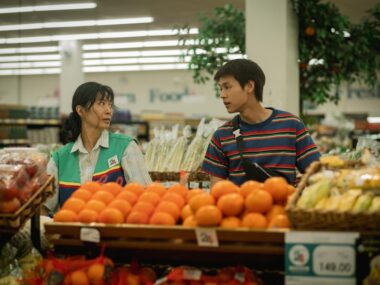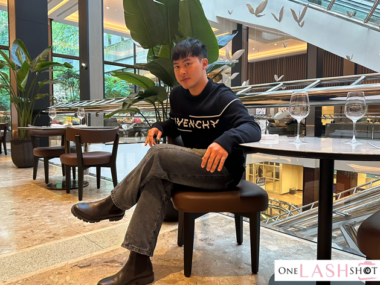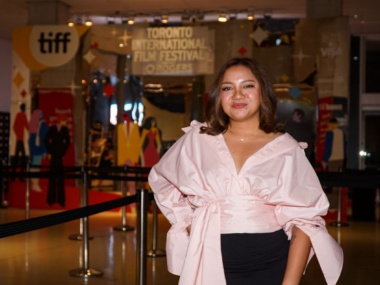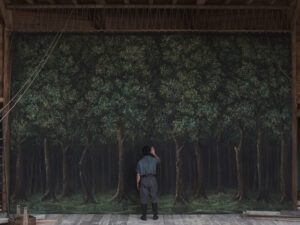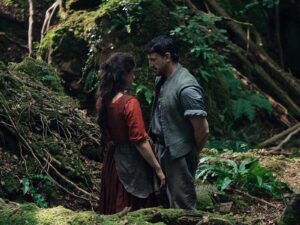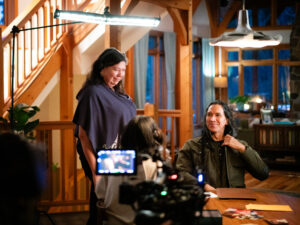With a long and outstanding career in Bollywood, Director Lakshmipriya Devi is one of the most sought-after names in the Indian film industry. After working as a second assistant director in Swades and Lakshya to becoming the first assistant director by Shikhar and Rang De Basanti, she made her mark in the film world. By the time she worked on PK and Talaash: The Answer Lies Within, she had a vision of her own— to try and write a good story.
Lakshmipriya Devi’s debut feature film Boong is a vivid and heart-breaking picture of childhood resilience that centres around a cool schoolboy, Boong, as he transcends boundaries and ethno-racial tensions in Manipur for the sake of his family. The film premiered at the Toronto International Film Festival on September 7.
One Lash Shot had the opportunity to speak with Lakshmipriya Devi, the director, about the behind-the-scenes of this project.

How did you first become interested in movies?
I used to always watch movies- in the audience. It was not like movie- making. I was studying for third year of economic honours and I went into an Indian Quiz Show- I saw the whole set-up, the way they were filming. I got so excited, I couldn’t sleep the whole night and I said to myself – “No more MBA, I am going to go and find an institute to find out how it exactly happened”.
So that’s basically how you got started in your career?
Yes, my life has been filled with happy accidents like this. Even while writing this film’s screenplay, I never thought. There were no expectations that it’s going to be made into a film. And then I sent it to my friend for budgeting and he said “Come on, I’ll produce it”. I just feel the universe has a way of surprising you to surprise yourself. That’s been happening with me quite a lot.
You have had a very long career! After being second assistant director in Swades (I watched it as a child!) and Lakshya to becoming first assistant director by Shikhar and Rang De Basanti to working in PK, Talaash: The Answer Lies Within etc. What made you decide to become the sole director of your own project?
I wrote it- if somebody was going to make it, it was going to be me only. Because I wanted to tell this story so desperately, you know, it’s like you had a child and you carried it for nine months and suddenly you have to send the child to a hostel or foster care…. suddenly you start wanting the child- that’s what I think happened with me. I was not desperate to make it into a movie. It’s ok if it did not become a movie. The main thing is that at least I wrote a script, because writing is a very important thing for me, as I cannot speak very well— I express myself through writing. Whatever I can’t pronounce, I can write it down. So, the biggest thing was that I could write, the directing was a bonus part of it.
What’s the overarching vision of the film? What inspired you, and what themes or emotions were you trying to convey through Boong?
Number one, I have always looked back with a lot of love for those days when my grandmother used to tell me Manipuri folklores. They were wonderful! She used to make up stories about cats, who would go and trouble the neighbourhood birds. Those are folklores- with her own additions. And, it makes you go into an uncomplicated, simple world. So Boong film by Lakshmipriya Devi is kind of like an urban folklore. I wanted to keep it as simple as that. Almost like “Once upon a time, there was a boy called Boong…..” kind of feeling. The subject I feel strongest about is closure. Because I think half the problems in this world would get solved if we had closure. Everyone has a power to forgive, but we don’t use that. And that holds everyone back. Countries are fighting on what has existed since non-fictional times. That’s a very important subject for me- closure.
What was your favourite scene in the film and why does it hold special meaning to you?
It’s so difficult to pick a favourite but I guess the end. I won’t reveal it as I don’t know if anyone else has seen it….
What challenges did you face during the production process and how did you overcome them?
Because I have been a first assistant Director for so long, you know that if something goes wrong, I always have a Plan A, Plan B, Plan C. I was filming in a place which had a difficult terrain to navigate. But in case something went wrong, we always had a back-up plan. So that really helped. My crew and cast- they were fantastic!
You know how Bombay is governed by time- everything works on a clock. But Manipur is not like that, they don’t care. But I was amazed how everybody was working around 12 hours- it was literally as good as them being from Bombay. Like 12-hour shifts, come on time- they were like true professionals. I think I could just see how charged everyone was. All people from different communities coming to work on the film together was a special blessing.
Was it easy to work with child actors? Gugun and Angom’s characters had to deal with very serious situations in the movie. How was your experience with them? How did you work with the actors as a unit, to bring the story to life?
The two of them are completely fearless. And they are obnoxious rascals. Half the time it literally helped as they were kind of like the characters in the film itself. They had the same kind of friendship. I never had to tell them – “You have to do this”, instead I’ll tell them, “This is what’s happening right now, so how would you feel?” They will respond saying “Oh Aunty, then I would feel like this….”. I’ll be like, “Exactly, then that’s what you are going to do”.
They were very intelligent for their age and the fact that they were fearless really helped because it can be very intimidating for kids who have never acted before, who have never come in front of a camera to stand with a crew—strangers with lights and camera. So, they were not fazed out by it, which was great.
Gugun doesn’t speak the language which is in the film. So, he had to learn the language— I think which is amazing for a child, you know. Even for an adult, it is so difficult to understand what you are feeling.
By the way, the lead actress, Bala, looks a lot like Lily Gladstone!
Oh God! Everyone- even in Mumbai when we had a screening for the crew, they started tagging Lily Gladstone and saying look-alike and all (laughs).
The location of Boong is very important to the story. According to you, what were the main factors adding to the narrative, while portraying the significance of Manipur?
Culturally, we are dance, music and color-driven. And because the movie is set during the time of Holi (an Indian festival of colours- it’s a five-day festival there). So, it really brings in another scale to the film and story, because the time is so vibrant, which also goes along with kids’ hope. That his father is going to come back. It’s like the celebration of colors is going to be a celebration of joy in their family. And then the dry spell of summer starts. It doesn’t come back. So, culturally, I was very clear that seasons had to be there, in terms of going through the emotion of the film, as well as the scale that we are seeing the colors— which actually links to the feelings.
And something which the audience will not know, but I really wanted to put was my tribute to Manipur. So, the location where the mother works is Asia’s largest women-run market. 5000 women work there. It’s not like you can just go and buy a spot. It comes from one generation to another. It’s very significant- it defines who comes with power, the women have very strong voices, all the protests start from there. It was my tribute- and I wanted the mother to have a spot in that market.
The hall where the singer sings- it’s one of the cinema halls in Manipur. Actually, it’s nothing to do with the cinema thing, but the trivia is that the front stall seats were from Japanese planes that were shot down during World War II because Imphal was a battlefield between Japan and Britain. I thought this might be my last film- so, I wanted to put as much as I could my personal tribute. Like showing Kangla was very important to me. It was the seat of power, the most important, sacred place before we became part of India. And that was our identity. So having the school trips in Kangla and nowhere else was super important.
You mentioned ‘closure’ as the main topic. What is the intended impact on the audience? What do you hope viewers to take away from Boong?
It’s so easy to close- even for a child, who is doing it completely out of innocence. Closure and forgiveness are so easy. We can all achieve it.
So, what does your near future look like post the undoubted success of Boong? Are there any upcoming projects or themes you’d like to tackle?
I don’t know yet. I like to have no expectations. Kind of similar to the closure thing, in friendships, relationships, the whole thing starts going haywire when you have expectations. It’s best not to have expectations. I just hope life will surprise me again. I will keep writing- I don’t know if it’ll become a film, but I will keep writing.
Would you step into more stream-lined Bollywood, like the ones from your assistant director days?
I am always open to everything. I really love surprises!
The last side of your movie stated that several people were displaced seven days after the film’s shooting had ended. What actually happened?
Lot of people were displaced and now live in relief camps, which is mainly all the people of Moreh. They have been asking when the film is releasing because they want to have a look at their homes. They haven’t seen their homes in more than a year now. They don’t know whether they will ever get to see it. It became a very personal issue for me, so it was important for me to put that statement. When this incident happened, when I look back there was so much of love, there was so much of laughter and unity among everybody. There were people from different communities and suddenly it felt like a dream, like a mirage.
But now, can you imagine people are waiting for a film to be released to see their home? It just gives me goosebumps.
[Author’s note: Thank you to Ms. Lakshmipriya Devi and her team for bringing such a beautiful film to the world.]

